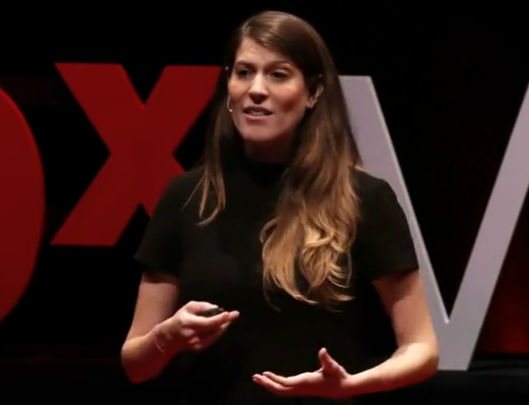And the comment section for that video became sort of like a self-help section,
并且那个视频的评论区变得有点像一个励志互助区,
where people could talk about their tonsil stone experiences and, like, tips and tricks for getting rid of them.
人们可以谈论他们扁桃体结石的经历,比如摆脱它们的方法和策略。
And I think it became this great way for people to talk about something that they'd never felt comfortable taking about publicly.
我想这已经成了人们敞开心扉直面问题的绝佳途径。
And that is wonderful when it's about something as goofy as tonsil stones,
能讨论诸如扁桃体结石一类恶心的东西,确实大快人心,
but it's a little sad when a video can have an effect like that when it's about something as common as periods.
然而对于一个有相同影响力的视频,例如月经一类的平常事物,情况就不那么乐观了。
Last February, I released a video on menstruation,
去年二月,我发布了一个有关月经的视频,
and to this day, I am still getting messages from people around the globe who are asking me about their periods.
一直到今天,我仍会收到来自全世界人们关于自己月经问题的留言。

There are a lot of young people -- and some not-so-young people -- out there,
许多年轻人--还包括年纪稍大一些的人,
who are worried that what's happening to their bodies is somehow not normal.
担心她们身体出现了一些异常。
And, of course, I always tell them that I am not a medical professional,
当然,我总告诉她们我不是医学专家,
and that, if possible, they should talk to a doctor.
如果可能的话,她们应该去咨询医生。
But the truth of the matter is that everyone should feel comfortable talking to a doctor about their own bodies.
但事实上:所有人应该很自然地与医生谈论她们自己的身体。
And that's why I think it's really important for us to start this dialogue about gross stuff from a pretty early age,
这也是为什么我觉得从年轻时开始直面恶心事物对我们来说很重要,
so we can let our kids know that it's alright to have agency over your own body and over your own health.
这样就可以让我们的孩子们懂得:应该有人关心你们的身体,对你们的健康负责。












